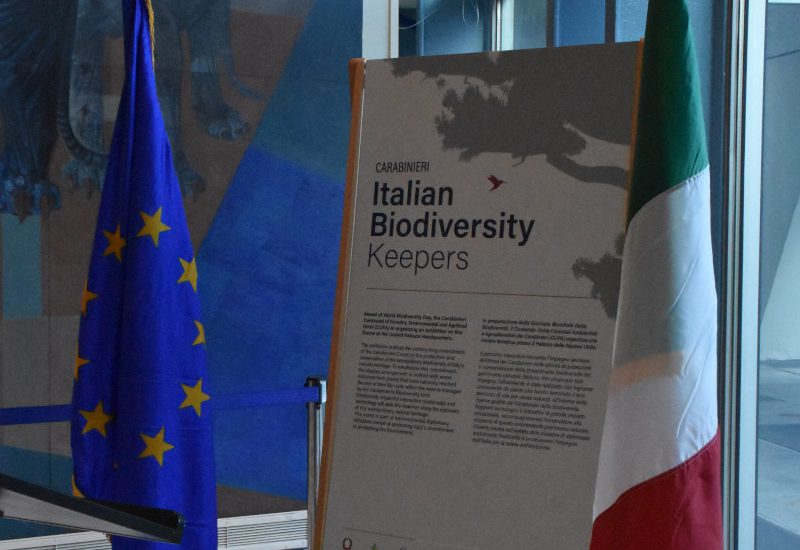
As part of an environmental diplomacy initiative aimed at promoting Italy’s commitment to protecting the Environment, under the auspices of the Ministry of Defense and the Ministry of Environment and Energy Security, with the coordination of the Permanent Representation of Italy to the United Nations, the participation of the Italian Air Force and in collaboration with Leonardo and Telespazio, the Carabinieri Corps is promoting an exhibition on the activities of this Command to be held in New York from May 8 to 18 at the UN Building in preparation for World Biodiversity Day.
The exhibition speaks to the commitment of the Carabinieri Corps to the protection and conservation of Nature and will highlight the institution’s efforts through the Carabinieri Command of Forestry, Environmental and Agrifood Units ( in the protection and conservation of biodiversity through its surveillance activities of the country’s agro forestry territory, combating crimes in the areas of forest fires, environmental damage, pollution and illegal waste management, illegal trade in protected species of flora and fauna, animal abuse as well as the management of 150 state nature reserves and state owned areas and the surveillance of Italian National Parks.
As part of the exhibition, there will also be a section dedicated to the Air Force, which, with its Meteorological Service, provides an essential contribution to the country and the national community in monitoring and forecasting weather and climate conditions.
The concept of the installation is to take visitor s on a journey through a virtual forest. A conceptual and symbolic forest, ideally representing the natural heritage that must be guarded and preserved, where images and sounds of natural environments flow on screens distributed along the path, creating an evocative immersive landscape.
Through the help of several multimedia and interactive stations, visitors can explore a range of in depth content on multiple themes related to natural heritage and the activities of the Carabinieri Corps in the environmental sector, starting with the mapping of Italy’s most beautiful nature reserves. The natural heritage of 130 thousand hectares, with the highest concentration of biodiversity in Europe. Complex ecosystems, true natural ” that hold a multiplicity of animal and plant species in unique habitats and extraordinary landscapes in constant evolution to be discovered.
This population of fauna and flora in turn forms the subject of a dedicated interactive exhibit. Visitors can navigate through dozens of descriptive cards of the most widespread and protected species, learning about their distribution over the territory and their physical and environmental characteristics, as well as the index assessing their conservation status and risk of extinction according to the criteria of the IUCN (The International Union for Conservation of Nature’s Red List of Threatened Species), thus carrying out further work to raise awareness and information on the issues of biodiversity conservation and protection of the natural resources we need to survive.
This day to day commitment to the Protection of Forest and Parks, Biodiversity, Environmental and Agri food Heritage forms the central chapter of the narrative. In fact, through interactivity, it was possible to build a navigable representation system of the vast and complex structure of all the activities in which the Carabinieri Corps, through its dedicated articulations distributed throughout the national territory, punctually and passionately exercises its role of “environmental police,” distinguishing itself as an excellence in the European sphere.
In keeping with the spirit of the exhibition, special attention was paid during the design and production of the installation to the materials with which it was made. The timber for the structure, belonging to four different species ( fir, ash, and oak), comes from plants that died naturally within the nature reserves managed by the Carabinieri for Biodiversity. Such timber represents a substantially important carbon resource The whole structure weighs about 3,200 kg and denotes a reserve of nearly 6,500 kg of CO2.

